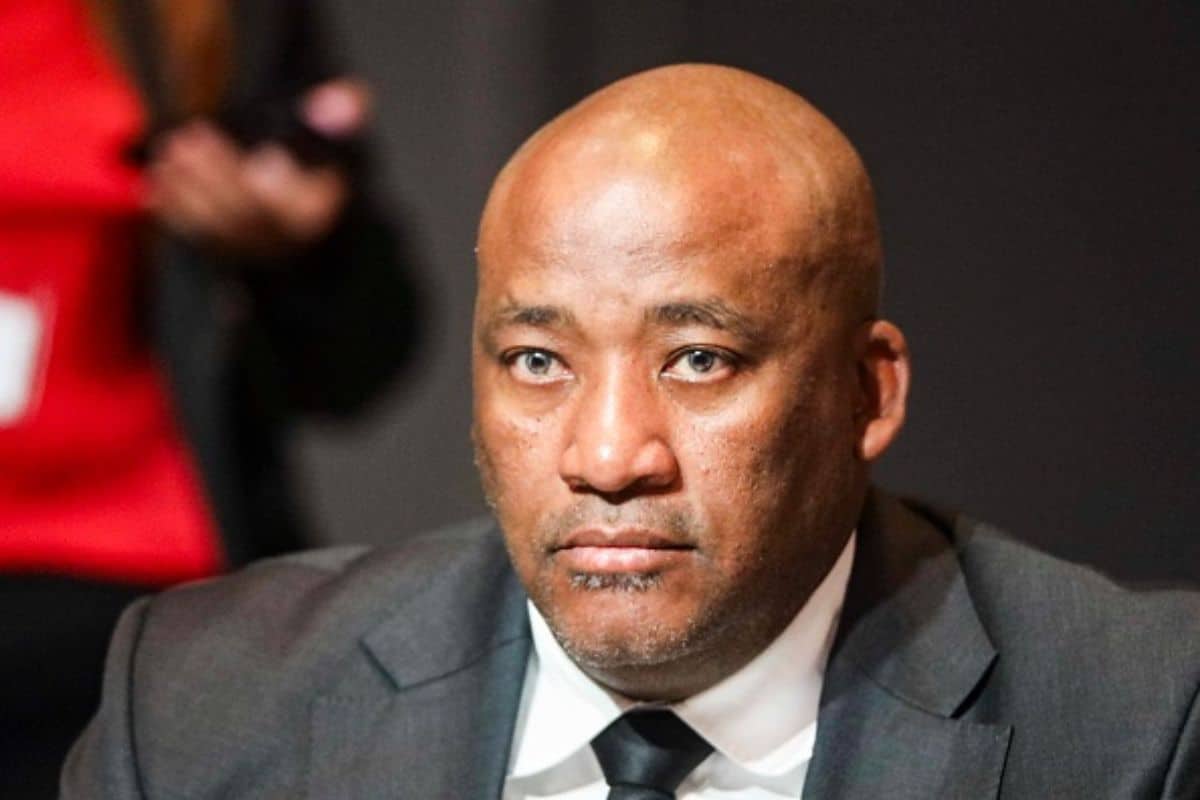McKenzie was responding to a question from EFF Member of Parliament Eugene Mthethwa, an artist and member of the Kwaito group Trompies.

Answering a question about artists’ livelihoods, Minister of Sports, Arts and Culture Gayton McKenzie was honest in his assessment.
He admits that there are currently no concrete plans for sustainable employment opportunities for artists in Mzansi.
“It must be openly acknowledged that sustainable, long-term employment for most artists remains implausible under current conditions without a fundamental change in how the sector is funded, organised and valued both economically and socially,” McKenzie said.
He was responding to a question by EFF member of parliament Eugene Mthethwa, who is also an artist and part of the long-standing Kwaito group Trompies.
McKenzie on artists’ vulnerability
The outspoken minister stated that he and his department were aware of the ongoing vulnerabilities that artists face, particularly those who rely on live performances for their income.
“While various programmes have been introduced over the years to support creative practitioners, it is crucial to recognise the inherent challenges and structural limitations that make achieving sustainable employment in the sector increasingly difficult.”
In his explanation, McKenzie said the nature of the creative industry is informal, primarily project-based, and seasonal.
“Meaning that most artists work as freelancers or gig workers without long-term contracts, benefits, or social protections. Live performances, whether indoor or outdoor theatre, music, or dance, depend heavily on audience attendance, sponsorship, seasonal programming, and wider economic conditions,” the minister expressed.
Because of this, he said, stable, full-time employment is not common in this industry, either in South Africa or worldwide.
McKenzie said the influx of new entrants into the sector, including young people graduating from arts institutions or self-taught creatives, continues to surpass the number of available opportunities.
“This heightens competition for limited work, and in the absence of substantial industry growth or increased public and private investment, results in underemployment and economic insecurity.”
ALSO READ: Saga chairperson Jack Devnarain slams Ramaphosa for being ‘forced’ to send Bills to ConCourt
Government support or lack of
In April of this year, a video of veteran actor Nandi Nyembe openly discussing her disappointment at not being able to make a living went viral on social media. McKenzie responded by offering to help her from his pocket.
In Nyembe’s video, she expressed that there have been artists who received as much as R100 000 from McKenzie’s office.
“But when you don’t have any luck like me, because those people are lucky, they were able to do their things with the money that everyone was supposed to get because [the money] is for artists, so why are they being selective?” asked Nyembe, in April.
However, in his response to parliament, the Patriotic Alliance president stated that the government has attempted to assist through various programmes, including the Mzansi Golden Economy (MGE), Cultural and Creative Industries Clusters, supporting festivals, and providing short-term employment through the Presidential Employment Stimulus Programme (PESP).
“These interventions cannot absorb the scale of demand for sustainable employment in the sector. Most of these programmes are grant-based and time-bound, offering temporary relief rather than long-term security,” he said.
The Performers’ Protection Amendment Bill (PPAB), which could dramatically change the livelihoods of actors, has been placed on Ramaphosa’s desk after having been passed through the National Assembly and the National Council of Provinces. Ramaphosa has referred the Bill to the Constitutional Court for a ruling on its constitutionality.
The PPAB is linked to the Copyright Amendment Bill (CAB).
The PPAB awards actors the statutory right to actor royalties, and the CAB gives the statutory right to form an organisation that can collect and disburse those royalties.
President Ramaphosa has identified some issues with the bills, stating that if passed, they could have a retrospective effect on the current owners of copyrights. Producers and/or production companies are the owners of copyrights.
NOW READ: Gigaba’s ex-wife on leaked sex video: ‘We were blackmailed for almost six months’






